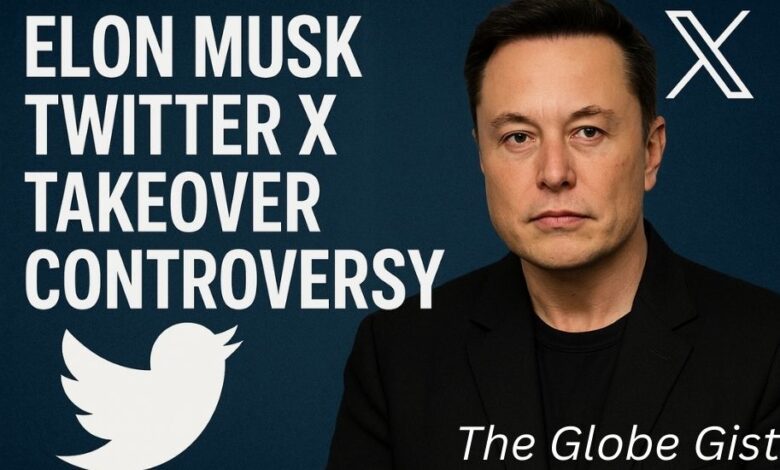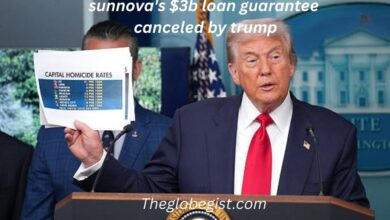Elon Musk Twitter X Takeover Controversy: The Full Story

The Elon Musk Twitter X takeover controversy has been one of the most talked-about events in the tech world in recent years. When Musk, the world’s richest man, acquired Twitter for $44 billion in October 2022, it instantly sparked debates about free speech, censorship, corporate governance, and the future of digital communication. What made the takeover especially controversial was not just the deal itself, but the series of dramatic decisions Musk made afterward—ranging from firing top executives and cutting staff to rebranding Twitter into “X.” This article explores the history, the financial side, the ownership shifts, the controversies, and the wider implications of Musk’s bold move.
Who Owned Twitter Before Elon Musk?
Before Musk’s takeover, Twitter was already a global, social media giant with hundreds of millions of users. It was founded in 2006 by Jack Dorsey, Noah Glass, Biz Stone, and Evan Williams. Over the years, Twitter went through different leadership phases:
-
Jack Dorsey served as CEO twice (2006–2008 and 2015–2021).
-
Evan Williams was CEO from 2008 to 2010.
-
Dick Costolo led from 2010 to 2015.
-
Parag Agrawal became CEO in 2021, shortly before Musk’s acquisition.
Institutional investors also held significant shares. For example, Vanguard Group owned about 10%, Morgan Stanley nearly 8.4%, and BlackRock and State Street close to 5% each. Despite Twitter’s cultural influence, its financial performance often disappointed investors, as the platform struggled to turn its vast popularity into consistent profits.
This backdrop of mixed success and corporate struggles created the opportunity for Elon Musk to step in.
Elon Musk’s Net Worth and Motivation
By 2022, Elon Musk’s net worth had soared past $300 billion, making him the world’s richest individual. His fortune came largely from Tesla, SpaceX, and later ventures like The Boring Company, Neuralink, and xAI. Estimates vary depending on market conditions, but as of 2025, Musk’s wealth fluctuates between $367 billion and $400 billion according to sources like Bloomberg and Forbes.
Why would the richest man in the world buy Twitter, a company struggling financially? Musk repeatedly stated his motivations were less about money and more about free speech. He described Twitter as the “digital town square” of the modern era, a place where free expression needed to be preserved. Critics, however, argued that Musk’s vision was politically motivated and would undermine trust and safety policies that protected users from harassment, disinformation, and hate speech.
Elon Musk Buys Twitter for $44 Billion
The acquisition process was filled with drama.
-
Initial Stake and Offer: In April 2022, Musk disclosed he had purchased a 9.2% stake in Twitter, making him its largest individual shareholder. Shortly after, he made an unsolicited offer to buy the company for $44 billion ($54.20 per share).
-
Hesitation and Legal Battles: Musk later tried to withdraw from the deal, citing concerns over bots and spam accounts. Twitter’s board, led by CEO Parag Agrawal, sued Musk to force him to honor his offer.
-
Deal Completion: In late October 2022, Musk reversed course and officially completed the purchase. He immediately fired top executives including Agrawal, CFO Ned Segal, and head of legal Vijaya Gadde. Twitter became a private company under Musk’s control.
The completion of this $44 billion takeover was historic—one of the largest leveraged buyouts in tech history. But it was only the beginning of a much larger transformation.
Controversial Decisions After the Takeover
1. Mass Layoffs
Within weeks, Musk cut Twitter’s workforce by more than half. Departments handling moderation, communications, and safety were downsized drastically. While Musk argued this was necessary to reduce costs, critics said it left the platform vulnerable to abuse, misinformation, and security risks.
2. Policy Changes on Moderation
One of the most contentious decisions was Musk’s rollback of strict content moderation rules. He reinstated several banned accounts, including controversial figures, framing it as a win for free speech. However, watchdogs reported a surge in hate speech and misinformation.
3. The $8 Blue Check Subscription
The traditional “blue check” verification system was replaced by a paid subscription model known as Twitter Blue (later X Premium). Anyone could buy a verification badge for $8 per month, leading to chaos when impersonators and parody accounts spread false information under the guise of credibility.
4. Rebranding Twitter to X
In 2023–2024, Musk began rebranding Twitter into X, aligning with his long-term vision of creating an “everything app” that would combine social networking, payments, and AI. The iconic bird logo was replaced by a bold “X,” a move that divided users between those who saw it as futuristic branding and those who felt it erased Twitter’s cultural identity.
5. Corporate Structure Changes
Twitter was merged into X Holdings and later integrated into Musk’s xAI company in 2025. This restructuring valued X at around $33–45 billion—much lower than the $44 billion Musk initially paid, sparking criticism that he had overpaid for a platform that quickly lost value.
Public Backlash and User Migration
Musk’s decisions generated both praise and criticism. Supporters hailed him as a champion of free speech, while critics argued that his leadership had destabilized one of the world’s most important social platforms.
-
Surge in Hate Speech: Researchers documented increases in offensive language and misinformation campaigns.
-
User Exodus: Disillusioned users migrated to decentralized alternatives like Mastodon and Bluesky.
-
Advertiser Pullback: Many major advertisers paused spending due to concerns about brand safety, which hurt X’s revenue.
These controversies created an atmosphere of uncertainty. Was Musk revolutionizing social media, or was he dismantling one of its most influential platforms?
Financial and Legal Implications
From a financial perspective, the takeover left Twitter heavily burdened with debt. Musk financed the deal with loans and equity sales, including billions from his Tesla stock. Servicing the debt added pressure, especially as advertising revenue dropped.
Legally, Musk faced challenges from former employees, regulators, and investors. His abrupt firings and restructuring sparked lawsuits over severance pay, contracts, and workplace rights. In addition, regulators in the U.S. and Europe scrutinized how content moderation changes aligned with digital safety laws.
Broader Implications of the Takeover
-
Free Speech vs. Safety: The controversy highlighted the ongoing global debate about how to balance free expression with online safety. Musk’s vision pushed platforms toward a looser, less restricted environment, but that came with risks.
-
Tech Billionaire Power: Musk’s purchase raised questions about how much power a single billionaire should hold over public communication platforms. Unlike governments or nonprofits, private owners are not bound by democratic oversight.
-
Corporate Governance Lessons: The saga exposed flaws in how big tech deals are negotiated. Twitter’s board accepted Musk’s offer quickly, perhaps too quickly, without ensuring better protections for the company’s future stability.
-
Social Media Evolution: Musk’s idea of turning X into an “everything app” mirrors platforms like China’s WeChat. Whether it succeeds remains to be seen, but it reflects the next phase of how social media could integrate financial services, AI, and more.
Conclusion
The Elon Musk Twitter X takeover controversy is not just about one man buying a company. It is a story about money, power, technology, freedom, and responsibility. It has transformed the way people view social media platforms and raised new questions about who should control the “digital public square.” While Musk envisions X as the future of communication and innovation, critics argue that the chaotic changes have damaged trust and value. The long-term consequences of this takeover will shape not only social media but also global discussions on technology and society.
As this story continues to unfold, one thing is clear: Musk’s takeover of Twitter—now X—will be remembered as one of the most dramatic and controversial corporate acquisitions of the 21st century.
In the end, this article is brought to you by The Globe Gist, a platform committed to delivering deep insights into world events, technology, and culture.
Thanks for read our article if you want more like this kind of article visit our site The Globe Gist, and comment us.



